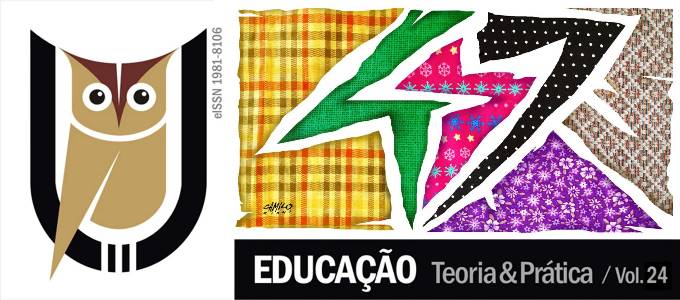Managerialism and large-scale assessment: new modes of regulation of basic education
DOI:
https://doi.org/10.18675/1981-8106.vol24.n47.p137-155Keywords:
Educational policies. Large-scale assessment. Managerialism. Regulation.Abstract
This work is an effort of systematisation of the discussions undertaken in Advancing Educational Policy Seminar II PPGE/FaE/UFPel and aims at analyzing the intensification of evaluative mechanisms in the scenario of Brazilian basic education defending the thesis that is part of the process of reconfiguration of the public administration within the framework of the capitalist project and yours consequent changes in the role of the State to cope with the crises and breed new forms of regulation. Use the theorizing of Alfonso (2009), Ball (2004, 2005, 2011), Maroy (2011), Theodore (2011), in the understanding of new public management and adjustment modes, as well as the official and legal documents supporting the understanding of new public management and adjustment modes current policy. Analyzes the public management model assumed by central Governments since the mid 1990 identifing the Managerialism, considering the adoption of business principles and mechanisms of control and accountability within the public machine. Educational policies in force are currently grounded by induction to the improvement of quality indicators, measured through national exams combined to school censuses which result in basic education development index-IDEB. It is believed that the panacea of the evaluation reflects the Organization of systems, of schools and of the classroom, with implications in the curriculum, teaching and training work of students.Downloads
Additional Files
Published
How to Cite
Issue
Section
License
Authors who publish in this journal agree to the following terms:
a) Authors assign copyright to the journal, with the work simultaneously licensed under the Creative Commons Attribution License that allows sharing of the work with acknowledgment of authorship and publication in this journal.
b) The policy adopted by the Editorial Committee is to assign copyright only after a period of 30 months from the date of publication of the article. After this time, authors interested in publishing the same text in another work must send a letter to the Editorial Committee requesting the release of the assignment of copyright and wait for a response.
c) This journal provides public access to all its content, since this allows greater visibility and reach of published articles and reviews. For more information on this approach, visit the Public Knowledge Project, a project that developed this system to improve the academic and public quality of research, by distributing OJS as well as other software to support the public access publication system to academic sources. The names and email addresses on this website will be used exclusively for the purposes of the journal and will not be available for other purposes. This journal provides open any other party  This work is licensed under a Creative Commons License
This work is licensed under a Creative Commons License











